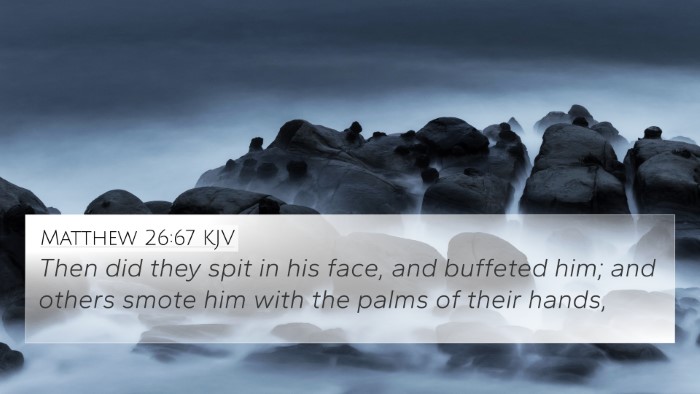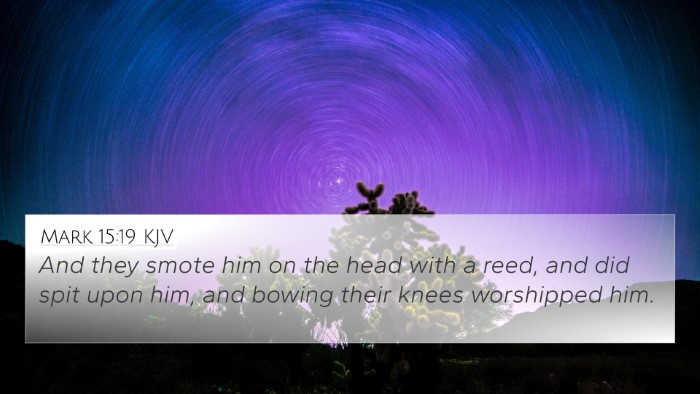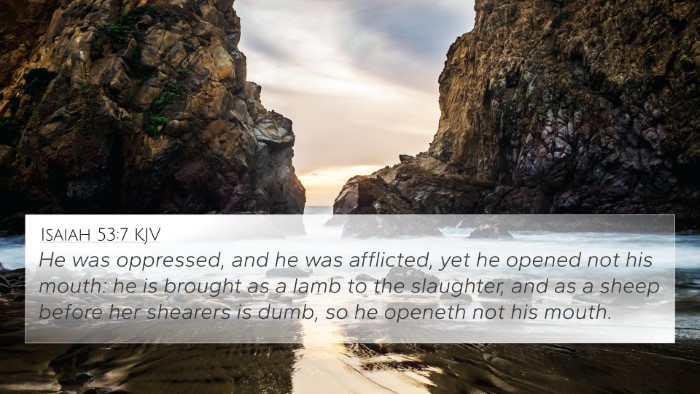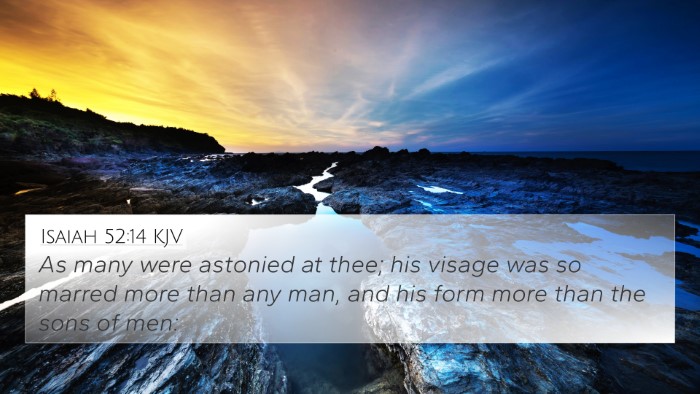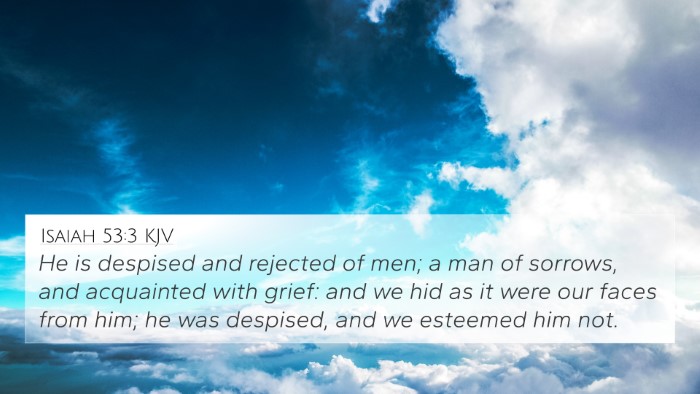Understanding Matthew 27:30
Matthew 27:30 states: “And they spat upon him, and took the reed, and smote him on the head.” This verse captures a moment during the trials of Jesus before His crucifixion, highlighting both His suffering and the rejection He faced from those He came to save.
Commentary Insights
This verse provides a significant insight into the brutal treatment of Jesus. Below is a combined summary from various public domain commentaries that explore the depth of meaning in this text.
Matthew Henry's Commentary
Matthew Henry emphasizes the humiliation of Jesus. He notes that the act of spitting upon Him is one of the most degrading actions imaginable, symbolizing the scorn He received from the Roman soldiers. Henry points out that this act fulfilled the prophecy of Isaiah regarding the suffering servant, thus reinforcing the connection between the Old and New Testaments.
Albert Barnes' Commentary
Albert Barnes elaborates on the psychological impact of the ridicule that Jesus endured. Barnes indicates that the reed, which would be a type of staff used, was mocked as a scepter - an ironic twist that highlights how the King of the Jews was treated at His trial. The soldiers intended to humiliate Jesus while masking their own spiritual blindness. This deep irony juxtaposes Christ's true kingship against the mockery imposed by man's wickedness.
Adam Clarke's Commentary
Adam Clarke provides insights into the cultural context of this event. He notes that spitting was considered a severe insult in Jewish culture, which adds weight to the cruelty of this act. Clarke emphasizes that the smiting with the reed was not just a physical attack but also a symbolic act of derision against the authority that Jesus rightfully held. In Clarke's view, these actions exemplify the fulfillment of prophesy and the depth of humankind's sinfulness.
Thematic Connections
The connections between this verse and others in the Bible unveil a profound narrative of suffering, humility, and divine purpose. Below are several Bible cross-references that relate to Matthew 27:30:
- Isaiah 53:3: "He is despised and rejected of men; a man of sorrows, and acquainted with grief." - This verse directly correlates with the mockery Jesus faced.
- Psalm 22:6: "But I am a worm, and no man; a reproach of men, and despised of the people." - This reflects the degradation that Jesus experienced.
-
- John 19:3: "And said, Hail, King of the Jews! And they smote him with their hands." - This provides a parallel to the actions described in Matthew.
- Luke 22:63: "And the men that held Jesus mocked him, and smote him." - This corroborates the mocking and violence faced by Jesus.
- Mark 15:19: "And they smote him on the head with a reed, and did spit upon him, and bowing their knees worshipped him." - Here, the same imagery illustrates the scorn of the soldiers.
- Matthew 26:67: "Then did they spit in his face, and buffeted him; and others smote him with the palms of their hands." - Similar actions are depicted, emphasizing the intent to humiliate.
- Revelation 1:7: "Behold, he cometh with clouds; and every eye shall see him, and they also which pierced him: and all kindreds of the earth shall wail because of him." - A prophetic recognition of the true nature of Christ's kingship.
Insights into Cross-Referencing
Understanding Matthew 27:30 through cross-referencing provides deeper insights into the nature of Jesus’ sufferings and the thematic elements of pride, sacrifice, and redemption. The connection between these verses reveals a thread of prophecy being fulfilled and helps believers comprehend the significance of Jesus' sacrifice.
For those studying the Bible, utilizing tools for Bible cross-referencing and a Bible concordance can enhance one’s understanding of how different scriptures speak to one another. This cross-reference Bible study approach enables a greater appreciation of Biblical narratives and themes.
Conclusion
In conclusion, Matthew 27:30 serves not only as an account of Jesus’ physical suffering but also as a profound representation of the rejection and mockery from humanity. By cross-referencing with other Bible verses, believers can gain a comprehensive view of a pivotal moment that underscores themes of humility, sacrifice, and divine fulfillment. Understanding connections between Bible verses enriches one's spiritual journey and enhances the ability to grapple with the overarching narrative of redemption found throughout Scripture.



